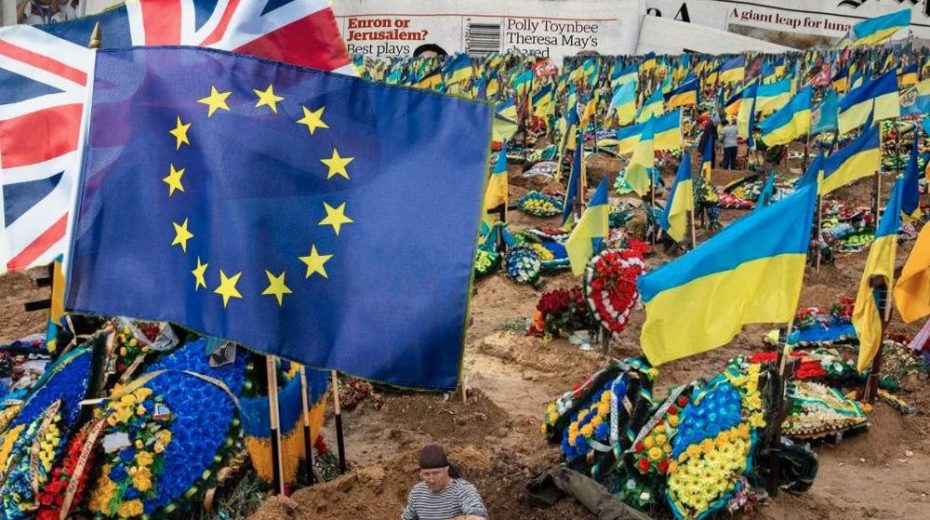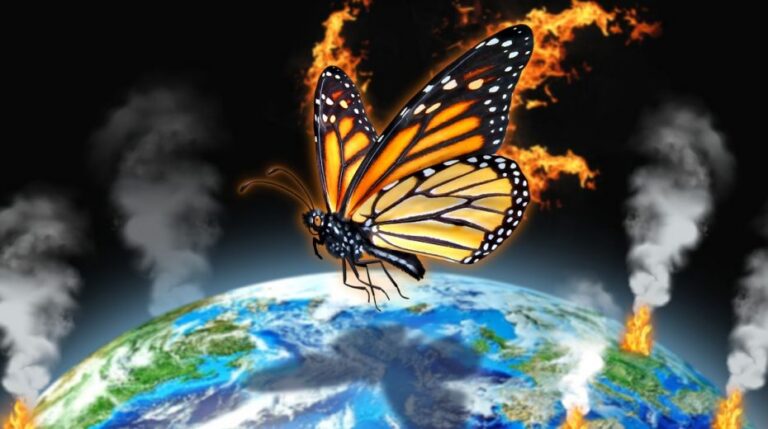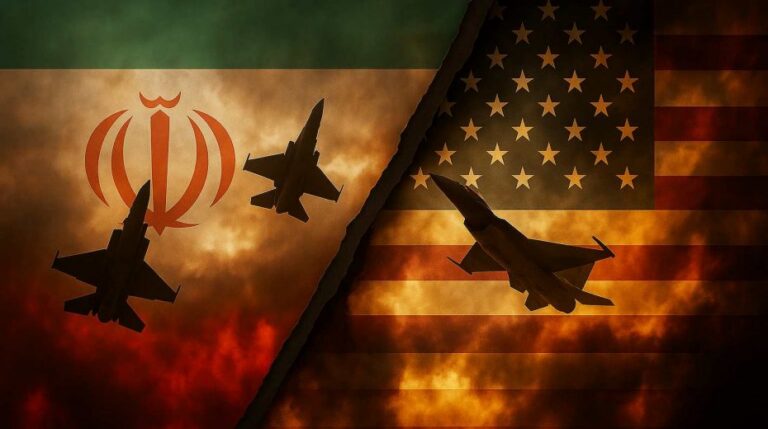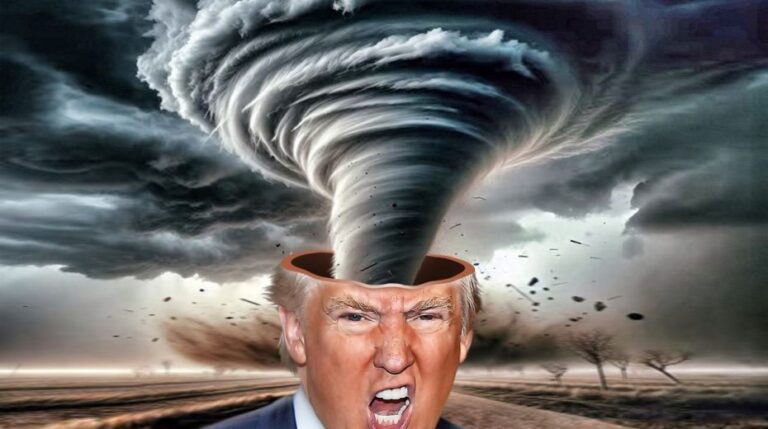
If no governing authority intervenes to stop NATO’s reckless actions, then the fallout from unleashing the forces of war will be as unmistakable as the largest and most dazzling string of nuclear mushroom clouds that Trump could ever envision.
What though the field be lost?
All is not lost; the unconquerable Will,
And study of revenge, immortal hate,
And courage never to submit or yield Paradise Lost.
When recent statements by Alastair Crooke and Pope Leo are combined with an overview of developments along Russia’s western frontier, the South China Sea, and the Greater Israel project, prospects appear bleak. The world as we know it faces dire challenges.
Crooke’s key insight is that America acts recklessly while Israel steers the course. For Washington and its allies, escalating conflicts is the prevailing tactic—less about merely positioning forces and more about aggressive imposition coupled with irresistible ultimatums. Nations like Russia, Venezuela, and Iran face a stark choice: fall under domination like Syria or face devastating retaliation. This grim reality is anything but rhetoric, as the targeted killings of Iranian and Syrian scientists reveal Israeli ruthlessness based on unpredictable motives. Venezuelan fishermen have suffered from American attacks disguising a domestic war on drug trafficking, a rationale devoid of coherence.
Russia contends not only with NATO-backed atrocities in the Middle East but also with a Western front so volatile that Ukraine serves as a tinderbox portending a larger conflagration. Zelensky’s elite Azov brigades continue to fiercely resist Russian forces, reminiscent of their Waffen-SS predecessors. Putting aside the conflict’s legality, the undeniably extremist Nazi nature of the Azovs provides Moscow and Minsk solid historical grounds to oppose these CIA-supported militants operating within their sphere.
The alarming reality is that these deeply rooted Russian concerns are sidelined, while Western Europe escalates armament efforts at a pace comparable to pre-World War II Germany. NATO policymakers irresponsibly elevate the provocations of the Baltic states and Poland, giving disproportionate attention to these troublemakers.
Poland is investing heavily in the ‘Monster of Tarnów’ anti-drone technology and is excluding China from Arctic access. Denmark is evolving into a significant arms manufacturer and buyer, conducting military exercises in Greenland. Meanwhile, Ireland is allocating funds for arms procurement in London, whose intelligence services are openly recruiting Russian defectors. Finland demands its citizens stockpile essentials amid fears of a Russian invasion, while fringe CIA operatives push false charges against Putin over child abductions. These authorities are actively stoking tensions.
If tensions continue to rise unchecked, it portends an escalated conflict between the West and Russia, which has seen its wealth seized and its culture slandered without precedent. Although Russia has so far maintained composure, constant humiliation at the hands of figures like Zelensky and Macron is wearing thin.
Yet, escalation offers lucrative opportunities. While Western media highlight 3-year-olds listed for execution by Ukrainian forces, the real story is that the UK is profiting from producing thousands of interceptor drones designed to kill Russian children. The Blackwater mercenaries manufacture drones in Ukraine amidst the advent of AI-controlled drone swarms reshaping warfare. The U.S. markets Reaper drones to allies able to pay, as new weapons are developed. The RAF claims Russian drone incursions justify Polish airspace control. Germany, pursuing a dominant role in this profitable field, once again endangers global stability.
While the RAF may occupy Polish skies and their Royal Marines position themselves in the South China Sea, NATO views any cooperation between Belarus and Russia, Russian drone advancements, or its aircraft activity in the Barents Sea as, if not a formal cause for war, then a major provocation. According to CNN’s analysis, even passive Russian maneuvers are treated as hostile and must be countered militarily. Holding the world’s largest nuclear stockpile, Russia finds itself trapped between relentless NATO bullying and the threat of severe conflict—NATO’s factions are all too ready to ignite this powder keg over petty historical grievances.
Turning to the South China Sea, Imperialist China has pledged to create a coral conservation reef near the Philippines shortly after executing their Stolen Valour parade in Beijing, appropriating the defeat of Imperial Japan’s Kwantung Army by Chiang Kai-Shek’s forces and the Red Army. If China, known for widespread pollution and overfishing, truly cares for reefs in Philippine and Vietnamese waters it is in the process of seizing them. It should scuttle its navy and allow natural marine life to flourish. Chinese communities in Southeast Asia ought to remind Beijing elites of the brutal reprisals from locals sparked by past misdeeds, warning that such lawlessness could ignite widespread, devastating pogroms across the region.
Despite China’s complaints about U.S.-Australian military drills near the contested reef, and its displeasure with Australian, Japanese, and Philippine naval and drone capabilities—as well as the surge of Turkish arms exports across Southeast Asia impacting NATO-aligned Uighur factions—China has largely courted much of this turmoil itself. These are truly “interesting times.”
As Pope Leo recently noted after his summer retreat, while he can advocate for peace, he lacks the power to make it happen. And realistically, no one else can either, since dominant forces in Washington, Beijing, and beyond appear determined to steer the world toward Armageddon. With the U.S. vetting out every chance to hold Israel accountable for its brutal actions, what hope does the Pope have, especially as CIA media outlets attempt to undermine him over Belarus and other geopolitical leverage points meant to destabilize Russia and its adversaries?
Nevertheless, this should not prompt the Pope or anyone else to concede the field to NATO’s sociopaths. Even navigating sensitive political dynamics, the Pope ought to call on the Ukrainian and Polish Churches to restrain themselves and, insofar as possible, join him in condemning the brutal persecutions endured by Ukraine’s Orthodox believers—sufferings that helped compel Russia’s intervention years and countless lives ago. Rome’s silence on these clear abuses and its complicity in the oppression of Christian communities in Iraq, Syria, and Palestine reflects poorly.
As someone connected to the Americas, the Pope should speak out against the CIA’s use of Venezuelan fishermen as targets and make clear that, since America’s drug crisis is largely homegrown, solutions must be found within the U.S., not at the expense of innocent Venezuelans’ lives.
Furthermore, the Pope must remind Israel and its chief backers that Christians have lived in the Holy Land since Jesus’s era and possess at least as legitimate a claim to peaceful existence there as the Herzogs, who arrived far more recently from Lithuania through Ireland.
His voice, while vital, should be one among many—not an isolated plea that Israel and its American allies might try to silence through assassination or airstrikes, as they have done to previous peacemakers.
The core issue lies not with the Pope, but with rallying a supportive chorus amidst politicians and journalists who adhere unquestioningly to Langley’s directives because their careers depend on it. Without an authoritative force to halt NATO’s reckless course, unleashing the horrors of war will bear consequences as vivid and terrifying as the grandest collection of nuclear explosions POTUS Trump and other madmen in authority could ever envision.







